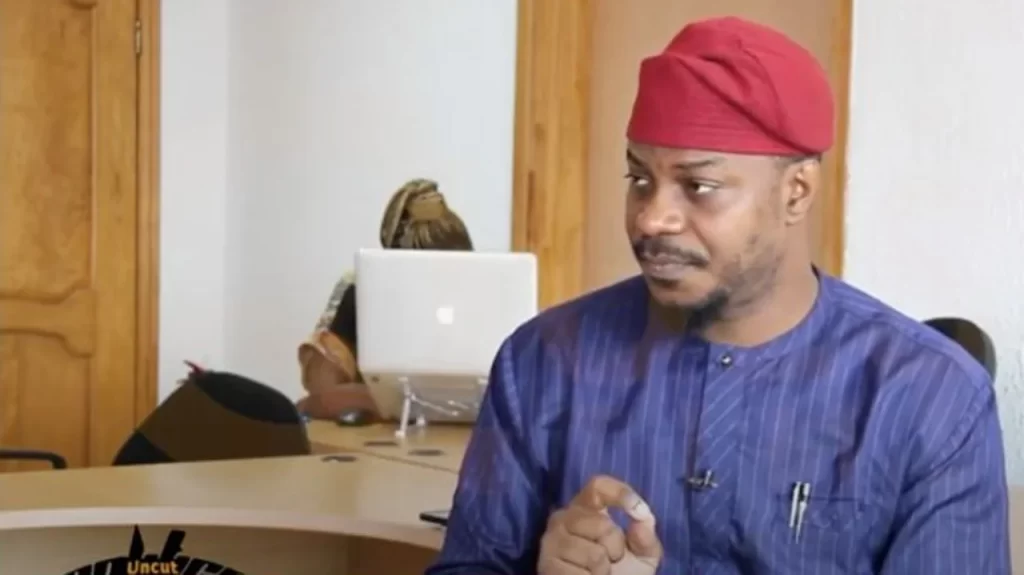
Rhodes-Vivour said that using the ancient Oro festival to threaten #EndBadGovernanceInNigeria protesters in Lagos is an insult to Yoruba traditional institution.
A former Labour Party (LP) governorship candidate in Lagos State, Gbadebo Rhodes-Vivour, has accused the All Progressives Congress (APC) and President Bola Tinubu’s government of attempting to use Oro festival in Lagos to stop the planned protest against hardship in the state.
Rhodes-Vivour said that using the ancient Oro festival to threaten #EndBadGovernanceInNigeria protesters in Lagos is an insult to Yoruba traditional institution.
On Thursday, Rhodes-Vivour took to his X account (formerly Twitter) to express concerns about the festival’s scheduling, which coincides with the planned protest, set to take place from August 1 to August 15.
A pro-Lagos State Government X handle, @lagospedia, had announced that the Oro festival which restricts people’s movements when observed, will be celebrated in various communities in Lagos from August 1 to August 15, 2024.
“Public Announcement: Attention Residents and Visitors of Lagos.
“Please be informed that the Oro Festival will be observed in various communities across Lagos from 1st of August to August 15.
“This traditional Yoruba cultural event involves significant rituals,” the post read.
Reacting to the announcement, Rhodes-Vivour said, “The campaign by APC propaganda handles to use ORO – a sacred ritual in Yoruba land – to threaten protesters is an assault on our traditional institution.”
He said, “Casualising centuries of a hallowed ritual with such juvenile intent debases our culture and corrupts our revered institution.
“The Yoruba are obsessed with Justice and fairness, not only as a guiding principle but also as a defining feature.
“It explains why, although the subjects recognize their king as an authority second only to the gods, the community does not tolerate high-handedness on the part of the king. Whenever they perceive such, there is bound to be a protest.
“The subordinates of Àare ̣ Kúrunmí of Ìjàyè rebelled openly against his leadership because he had not consulted with them before declaring war against Oyo and Ibadan.
“They insisted on their right to voluntarily consent (or refuse to consent) to fight the battle that Kúrunmí had declared without consulting them.
“In 1916, peasants in Iseyin-Okeho resisted colonial imposition and sought freedom for themselves and their children.”
He quoted a Yoruba intellectual, Prof. Segun Gbadegesin as saying, “A people who disdain unfairness by deities cannot be expected to countenance the same by their king, who is subservient to the deities.
“The mindset that challenges the deity to avoid worsening their condition if they are incapable of improving it (òrìṣà bóò leè gbè mí, fi mí sílẹ̀ bóo ti bá mí) will, by the same token, resist any attempt by their earthly kings to aggravate their social life.”
Rhodes-Vivour said Gbadegesin further argued that perceptions of violating this basic principle of social life are at the centre of the various civil unrests in pre-colonial Yorùbáland.
He said, “Historically, our people have resisted oppression and injustice. That is why not only did the Yoruba begin and lead the intellectual resistance against the colonialists, but Lagos was also the centre of that resistance.
“Consequently, loud and uncouth political operatives masquerading as Yoruba Conservatives must never be allowed to bastardize our tradition or trade our rich heritage for a morsel of bread.
“The same dubious tactic was used to attempt to rattle Olufunmilayo Ransome Kuti when she led a struggle on behalf of women.
“I urge patience and restraint from our youth but defend their right to peaceful assembly. More importantly, I call on our respected traditional leaders to condemn our tradition’s desecration and guard our revered institutions jealously.”






